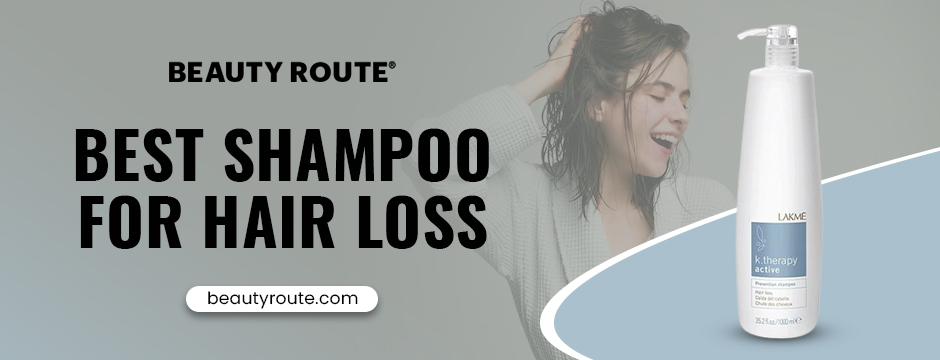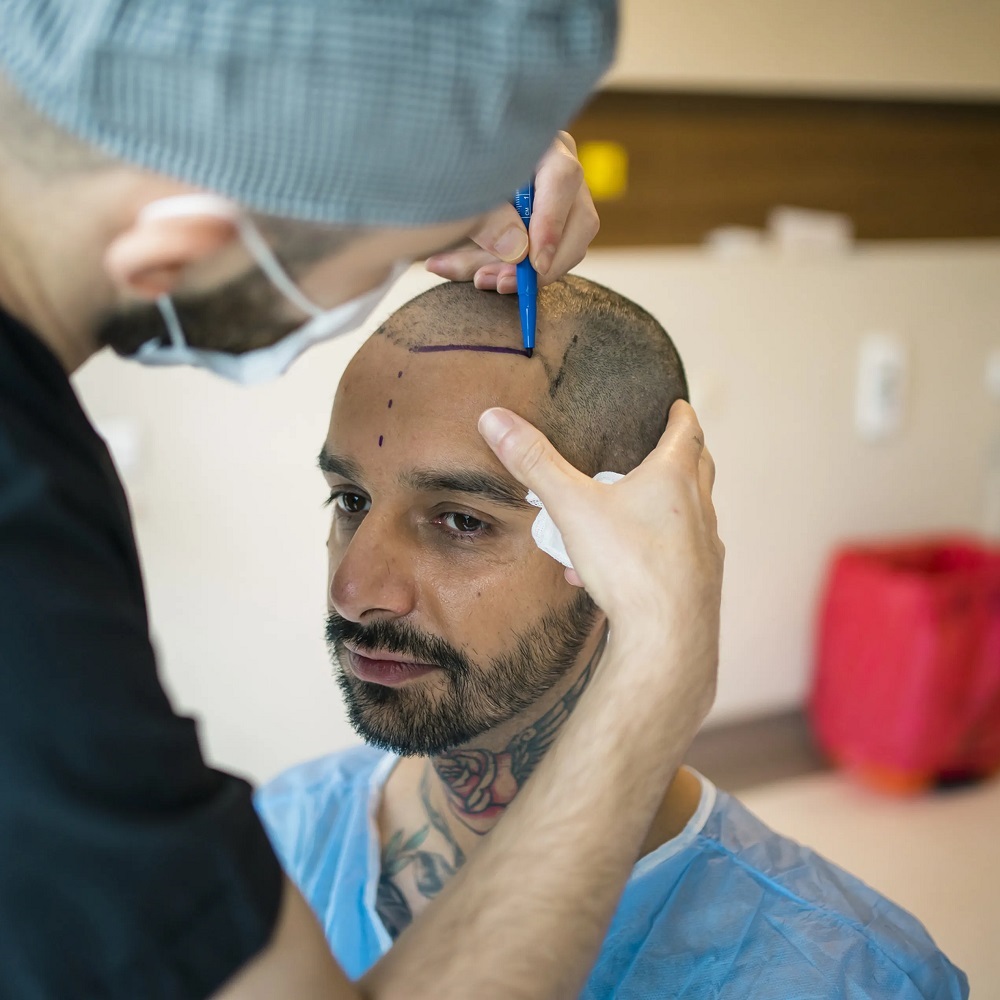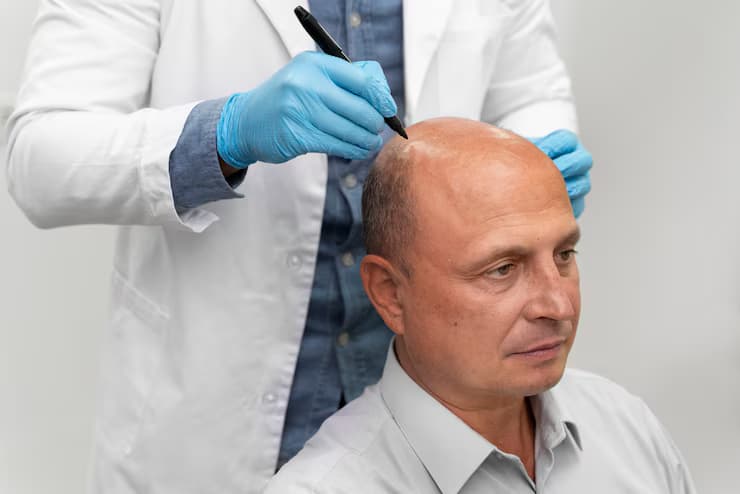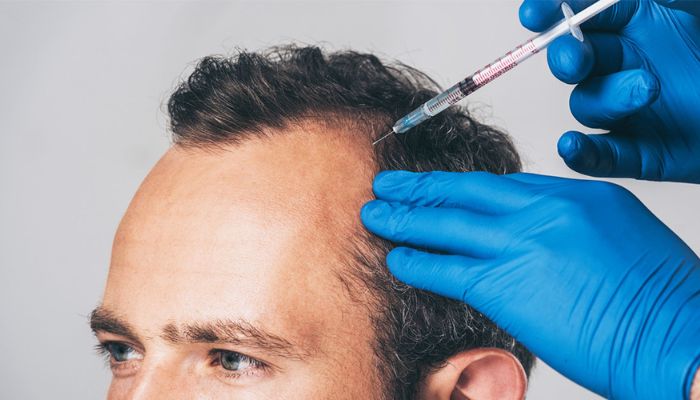Best Shampoo for Hair Loss: How to Choose Based on Your Scalp Type?

Strong 8k brings an ultra-HD IPTV experience to your living room and your pocket.
Hair loss is a concern that affects both men and women across age groups. Whether caused by genetics, hormonal changes, stress, environmental pollutants, or improper hair care routines, the result can be distressing. It impacts not only our physical appearance but also our confidence and self-esteem. While treatments like serums, medications, and supplements are often recommended by dermatologists and hair care professionals, the simplest and often most overlooked place to start your recovery journey is with the right shampoo.
✍️ Wondering if PRP is painful or effective? Our article on PRP hair therapy answers common questions about safety, discomfort levels, and visible improvements based on real case studies.
But did you know that your scalp type plays a critical role in how effective your shampoo will be?
Your scalp’s condition — whether oily, dry, sensitive, or balanced — directly affects your hair health and determines how well your shampoo combats hair thinning or loss. Choosing a shampoo blindly, without understanding your scalp type, can actually worsen the problem instead of solving it. For example, a shampoo that’s perfect for someone with an oily scalp might be far too harsh and drying for someone who struggles with flakiness.
This is why understanding your unique scalp type is essential. In this blog, we’ll break down how to identify your scalp type and recommend the Best Shampoo for Hair Loss that supports hair growth while addressing specific scalp needs. Say goodbye to generic solutions and hello to personalised care that truly works.
Know Your Scalp Type Before Choosing a Shampoo
Before reaching for any anti-hair loss shampoo, it's important to understand your scalp type. Not only will this help reduce hair fall, but it will also ensure you're nourishing your scalp and strands properly. This step is especially important when choosing the right shampoo for colored or dyed hair, as chemical treatments can alter scalp sensitivity and hydration levels.
Here’s a quick overview of scalp types:
Oily scalp: Feels greasy shortly after washing. This type often leads to clogged follicles, buildup, and even dandruff.
Dry scalp: Feels tight, flaky, or itchy. A dry scalp can result in inflammation, irritation, and contribute to hair thinning.
Sensitive scalp: Easily irritated, often reactive to strong fragrances or chemicals. It requires very mild products.
Balanced/normal scalp: Neither too oily nor too dry. While it seems ideal, it still requires consistent, tailored care.
Knowing your scalp type helps you choose a shampoo that not only targets hair loss but also supports long-term scalp health and promotes an ideal environment for new hair growth.
For Oily Scalp: Clarifying Yet Gentle is Key
Excess oil production can lead to greasy roots, clogged pores, and even hair fall due to blocked follicles. If you have an oily scalp, the key is to maintain cleanliness without over-drying. Over-washing or using harsh shampoos may strip away natural oils, causing the scalp to produce even more oil as compensation.
Opt for the Best Shampoo for Hair Loss that deeply cleanses yet respects your scalp’s pH balance. Ingredients like:
Salicylic acid: Helps exfoliate the scalp and reduce sebum buildup.
Tea tree oil: Known for its antibacterial and oil-regulating properties.
Witch hazel: A natural astringent that controls oiliness.
Avoid shampoos with heavy moisturizers or creamy bases, as these may weigh your hair down. Washing your hair every 2–3 days can help keep oil production in check without drying out the scalp.
For Dry Scalp: Nourishment and Hydration Matter
A dry scalp can be uncomfortable, with symptoms like itching, flaking, and tightness. Over time, this dryness can cause inflammation and even damage hair follicles, leading to hair thinning or breakage.
The best shampoos for a dry scalp are those that hydrate and replenish the scalp’s moisture barrier. Look for formulas rich in:
Argan oil and coconut oil: Known for deep moisturisation and scalp repair.
Aloe vera: Soothes irritation and adds moisture.
Hyaluronic acid: Retains hydration and plumps up dry scalp skin.
Avoid formulas containing sulfates, alcohol, or synthetic fragrances, which can aggravate dryness. A creamy, sulfate-free shampoo that gently cleanses while deeply moisturizing the scalp will promote healthier hair from the roots.
For Sensitive Scalp: Gentle and Fragrance-Free Options
If your scalp tends to sting, burn, or itch after using common shampoos, chances are it’s sensitive and prone to inflammation. This sensitivity can be due to allergies, harsh ingredients, or even prolonged exposure to pollution and sun.
Choose a hypoallergenic and fragrance-free shampoo like Alter Ego Chromego Shampoo. Such shampoos are specially formulated to cleanse without causing irritation. Key calming ingredients include:
Chamomile and calendula: Natural soothers that calm inflammation.
Oat extract: Provides gentle cleansing and reduces redness.
Avoid any product with sulfates, parabens, and artificial dyes. A pH-balanced formula designed for sensitive skin ensures comfort, while also reducing the chances of hair fall caused by product reactions.
For Balanced Scalp: Mild Yet Effective Formulas
Even if your scalp isn’t particularly dry or oily, it still requires proper maintenance to avoid tipping toward an imbalance. A balanced scalp benefits from shampoos that are mild yet infused with active ingredients to prevent future hair loss.
Go for sulfate-free shampoos with ingredients like:
Biotin: Strengthens the hair shaft and improves elasticity.
Caffeine: Stimulates hair follicles and promotes growth.
Ginseng: Boosts scalp circulation and strengthens roots.
Consistent use of such products ensures that your hair stays strong, your scalp stays healthy, and hair loss is kept at bay without disrupting your scalp’s natural harmony.
Final Words
Choosing the Best Shampoo for Hair Loss based on your scalp type can make a noticeable difference in reducing shedding, strengthening strands, and promoting long-term hair regrowth. It’s not about choosing the most expensive or popular shampoo — it’s about finding one that suits your unique scalp condition.
Explore targeted and dermatologist-approved options from the Beauty Route Hair Care Collection, where every formula is thoughtfully crafted to meet your scalp’s specific needs and restore your hair’s vitality. The journey to fuller, healthier hair starts with understanding your scalp and choosing the right care.
Note: IndiBlogHub features both user-submitted and editorial content. We do not verify third-party contributions. Read our Disclaimer and Privacy Policyfor details.







